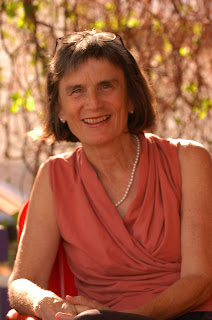Good "diverse" books are good books, period.
I go to a lot of books-related conferences for writers, publishers, booksellers, and librarians. In the last number of years, most of these conferences have included a panel of some sort on diversity in publishing. I’ve gone to many of these panels and participated in many of them. And I’ve noticed one thing: these panels are one of the only places where under-represented writers are represented.
That’s changing a little bit and I’m glad. But it seems like we still participate in segregation when we only market our “diverse” authors on “diversity” panels. Who, after all, is coming to these panels? Generally speaking, it is those of us who are already invested in these issues. We’re preaching to the choir, so to speak. And those people who don’t think about this issue at all but love fantasy novels or romance or crime novels—why aren’t they given the opportunity to hear about fantasy books or romances or crime novels written by authors from marginalized communities or about protagonists from marginalized communities on generalized panels about fantasy? (Not panels about "diverse" fantasy.)I have always loved books. I love books so much that I created a career in publishing as a writer, publisher, editor and publicist. The books I’ve worked on are spectacular. I want you to read them. Right now. But I’m frustrated that the best way to promote these books is to label them “diverse.” This designation both amplifies and narrows the book’s audience.
I love these books because of the qualities that allow me to label them as “diverse.” I love that readers who are often overlooked can see themselves in these books. But most of all, I love these books because they are great books. That is, they illuminate the human condition. They help us build compassion and empathize, on the one hand, and confront us with our own peculiar life and values on the other—whether you share a common background with the protagonists or not. I love the connections they make between and among people. That, after all, is what I value about books: connection.
The concept of diversity is potentially useful because it can help editors see communities where they should be looking for writers or developing writers in the community. But I think it has limits in usefulness when it’s deployed as a marketing tool. As both a reader and editor, I don’t celebrate certain books because an author is Mexican-American or LGBTQ or any other identity (fill in the blank). I find it demeaning and, yes, a little bit racist or sexist when we celebrate authors/illustrators because of their identity as opposed to celebrating authors/illustrators because of the great books they’ve produced. Books are good because authors have talent and work hard and master the fine art of presenting inner worlds and conflict and plot and characters in a package that the rest of us can consume. To celebrate authors’ and illustrators’ achievements because of their identity is not getting us where we actually need and want to go. In the “old days” of about five years ago, critics would suggest that a book somehow touched on universal values even though it was “set in the projects” or “explored the culture of the U.S.-Mexico border” or touched on “the African-American experience” (as though there could ever be ONE African-American experience anyway). How silly is this? Books that feature human protagonists can appeal to anyone. That doesn’t mean that all books appeal to all people, but we have to stop talking about books in ways that categorize and segregate people, that put boundaries and borders between us.
The idea that “we need diverse books” is foundational. It’s fundamental. It’s so basic nobody should even argue with it. (Yes, I know that there are some outliers out there who still fail to understand this basic fact. But I think we can safely begin to ignore them.) Because of the history of publishing, and gatekeepers with biases, we have needed a strong emphasis on books by authors of color or LGBTQ authors; we’ve needed some of the movements, awards, and lists that celebrate that. We’ve needed diversity panels. But now, instead of providing stepping stones to total inclusion, this seems to be creating segregation. We should move beyond the basic idea to the next, perhaps more important, conclusion: any thoughtful, well-written book by any writer of any identity can be for any reader, no matter where they live, what experiences they have had, or what cultural/ethnic/racial/religious/sexual/national/or other identity they happen to have.
—Jessica Powers


Comments